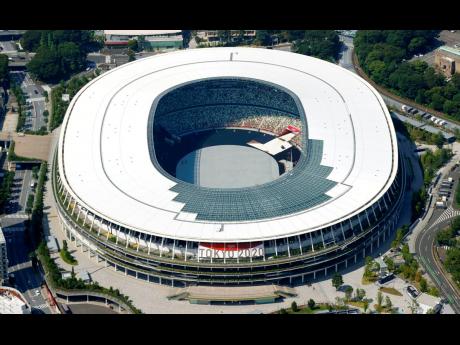Holding Games in pandemic shreds consensus in Japan
TOKYO (AP):
Japan is famous for running on consensus. But the decision to proceed with the pandemic-postponed Tokyo Olympics has shredded it.
On one side, the Japanese public face concerns about the coronavirus at a time when only 16 per cent are fully vaccinated. On the other side are politicians who hope to save face by holding the Games and the International Olympic Committee (IOC) with billions of dollars on the line.
“We have been cornered into a situation where we cannot even stop now. We are damned if we do, and damned if we do not,” Kaori Yamaguchi, a member of the Japanese Olympic Committee and a bronze medallist in judo in 1988, wrote in a recent editorial published by the Kyodo news agency. “The IOC also seems to think that public opinion in Japan is not important.”
Support for going ahead seems to be split, and there’s persistent opposition. Much of that concern stems from qualms about the health risks. Even though the government is now supercharging its vaccine drive after a slow start, the vast majority of the population still won’t be immunised when the Games start in two weeks.
That’s left the IOC and the Japanese government going through contortions to pull this off. Dr Shigeru Omi, the government’s top COVID-19 adviser, called it “abnormal” to hold the world’s biggest sports event during a pandemic.
The official cost of the Tokyo Olympics is US$15.4 billion, but government audits suggest it’s twice that. All but US$6.7 billion is public money. The IOC chips in only about US$1.5 billion to the overall cost, and some are in-kind contributions that do not involve cash.
The pressure to hold the Olympics is largely financial for the Switzerland-based IOC, a non-profit but highly commercial body that earns 91 per cent of its income from broadcast rights and sponsorship. Estimates suggest a cancellation could cost it US$3 billion to US$4 billion in broadcast rights income.
Beyond financial concerns, putting on a successful Olympics is also a major source of pride for the host country. Some economists compare it to throwing a big party. You overspend but hope your guests go away bragging about the hospitality.
CLING TO HOPE
“It’s a bit like a gambler who already has lost too much,” said Koichi Nakano, a political scientist at Sophia University in Tokyo. “Pulling out of it now will only confirm the huge losses made, but carrying on you can still cling to the hope of winning big and taking it all back.”
Before the postponement 15 months ago, Japan was on track to host a well-run, if expensive Olympics. It had a beautiful new National Stadium by architect Kengo Kuma, meticulous organisation, and a grand stage for a country that mounted historic Summer Games in 1964 – just 19 years after defeat in World War II. IOC President Thomas Bach called Tokyo the “best prepared Olympics ever” – and he still says it repeatedly.
But now, worries that the Games will become an incubator for the virus hang over them, with additional concerns about variant strains getting a foothold.
While the Games may still end up wowing television audiences who will tune in around the world, the pandemic has removed any sense of celebration. Athletes are meant to stay in the village or venues. Most others entering Japan for the Olympics can only shuttle between their hotels and venues for the first 14 days, must sign a pledge to follow the rules, and could have their movements monitored by GPS.

